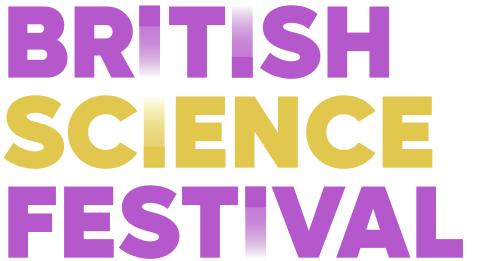Update – you can now see all the Award Lecture events and book your free tickets here.
The British Science Association (BSA) is pleased to announce the winners of its prestigious Award Lecture series for 2024. The seven Award Lecturers will share their work at the annual British Science Festival, which is being hosted by the University of East London from 11 – 15 September 2024.
The Award Lecturers are a cohort of UK-based, early career researchers who are being recognised for cutting-edge work in their field and their commitment to public engagement efforts, furthering the reach of their work.
The BSA has acknowledged promising early career scientists for over 30 years. Previous Award Lecturers include Brian Cox, Richard Wiseman and Maggie Aderin-Pocock.
Congratulations to:
- Nick Werren Research Associate at Heriot-Watt University for the Physical Sciences and Mathematics Award Lecture
- Sabrina Li Assistant Professor at the University of Nottingham for the Agricultural, Biological and Medical Sciences Award Lecture
- Chenying Liu Postdoctoral Researcher at the University of Oxford for the Engineering, Technology and Industry Award Lecture
- Liam Collins-Jones Postdoctoral Researcher at the University of Cambridge for the Digital Innovation Award Lecture
- Tim Lamont Senior Research Associate at Lancaster University for the Environmental Sciences Award Lecture
- Diana Teggi Lecturer at the University of Bath for the Social Sciences Award Lecture
- Rosie Poebright Research Fellow at the University of Bristol for the Science and the Arts Award Lecture
Nick Werren is following how particular bacteria harvest sunlight in different climates. This approach allows him to understand the physics of solar energy production on a quantum level. Join him to discover how being inspired by these tiny biological solar panels could help prevent the climate crisis.
Sabrina Li introduces Geographic Artificial Intelligence (GeoAI), a tool using experience and research from the richly biodiverse tropical regions of Brazil. This innovative tool for mapping and revealing health inequalities across time, space, and populations may help us to understand the life course of infectious diseases and their impacts on populations.
Chenying Liu is embedding origami techniques into robotic design. Robots can be useful in all sorts of situations, from acting as a gripper for agricultural harvesting, to a crawler for disaster response. However, these tasks often demand high dexterity, and developing versatile robotic hands is extremely challenging however they may have found a solution. Applying inspiration from something called ‘thick-panel origami’ alongside 3D printing, she is able to create robots capable of grasping with ease.
Liam Collins-Jones is developing and testing new technology to uncover the inner workings of an infant’s brain. By playing them nursery rhymes and shining harmless light waves into the baby’s head, he’s able to stimulate and measure brain activity across the entire surface. Understanding this activity allows him to see how different parts of the brain work together. Insights like these could be crucial for understanding brain development and shedding light on neurodivergent brains and Deaf babies.
Tim Lamont invites us to celebrate the opportunities provided by ecosystem restoration. Join him to become part of ‘Generation Restoration’ and find out about his research, experimenting with new restoration techniques for helping tropical coral reefs recover from damage. Learn about how we can all contribute to ecosystem restoration, helping nature flourish and creating a better world for us all.
Diana Teggi has completed an in-depth study into end-of-life care practices within care homes. Often there can be a lot of stigma and misinformation surrounding those who provide this care. Her aim was to dispel some of these assumptions. Join her to discover a clearer picture of the variety of care available to those dying with dementia.
Rosie Poebright is researching what happens in our bodies and minds when we participate in cultural experiences. Working across neuroscience, philosophy, anthropology, and theatre they question what’s at stake, both physically and emotionally, when audiences participate in live story experiences.
The full British Science Festival 2024 programme will be launched in late June.
Connect with us on social media to stay up to date with the latest news and to know when to book your FREE TICKETS!
Follow us on X/Twitter and Like us on Facebook
